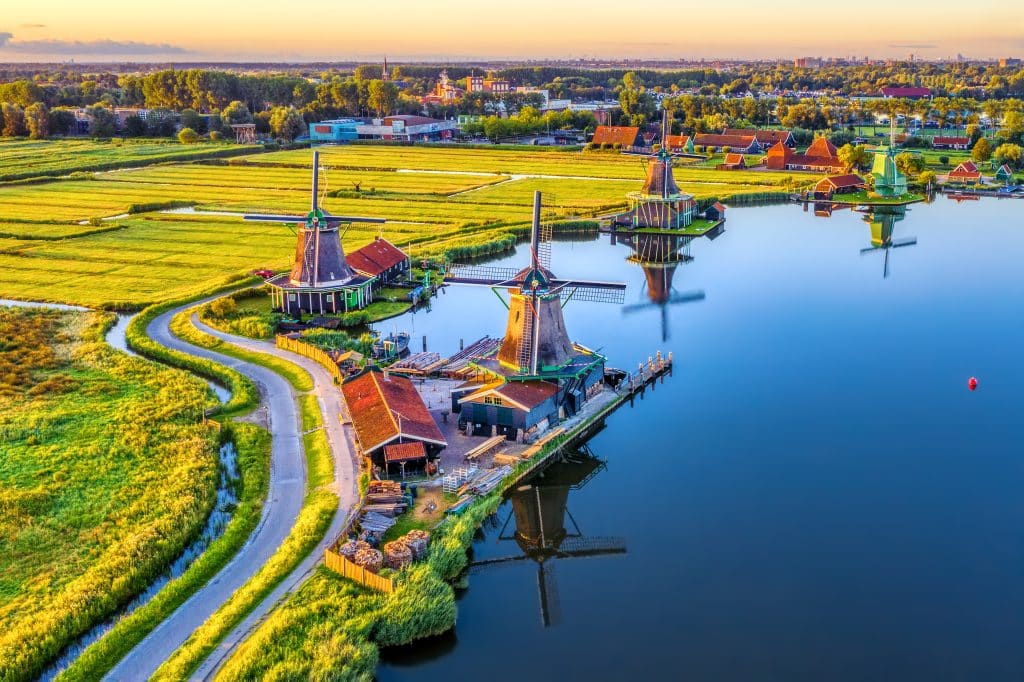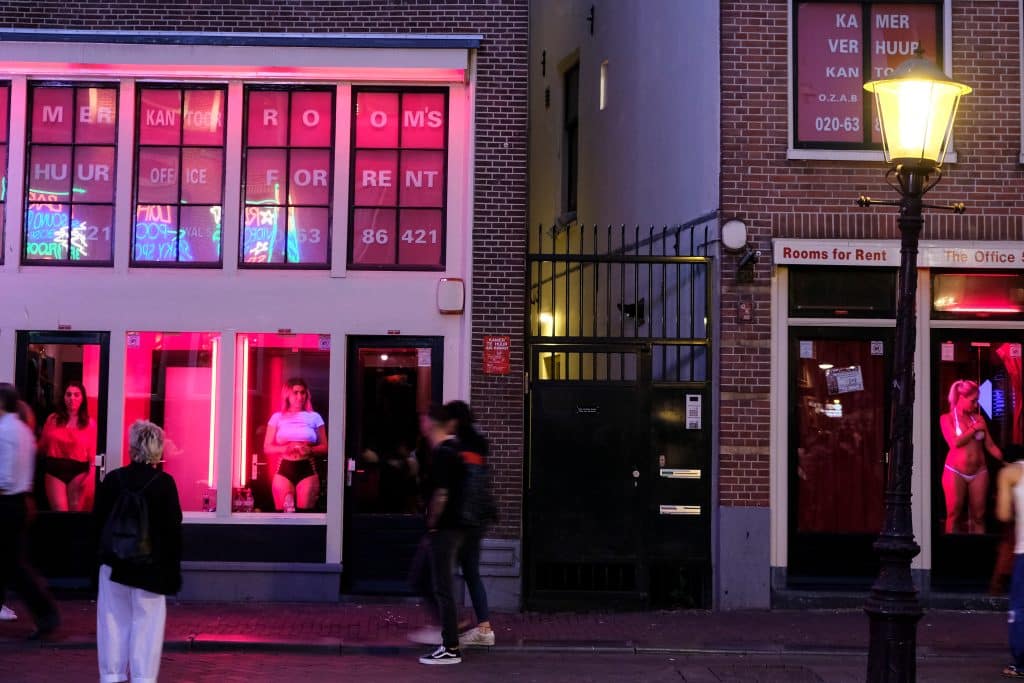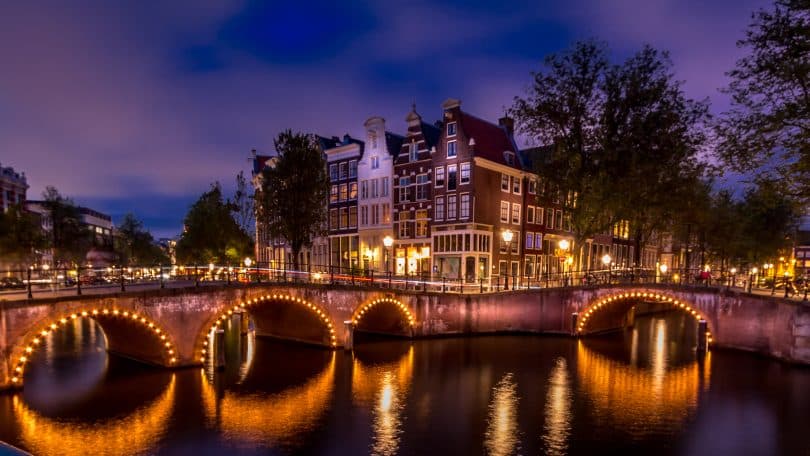For years, Amsterdam has been known as the cannabis capital of the world. The place that first allowed for mother nature’s green plant to have a home, without strict limitations. The city that first founded a genuine and flourishing weed market. However, whilst this reputation may bring with it popularity and riches, it is not always the sort of tourism that the Netherlands desire.
In fact, in recent years, government officials have aimed to stop drug tourism altogether. Although it’s unlikely that the country would completely end their ability to make money from a booming cannabis market, it is possible that things may be about to change in Holland’s capital. So, is Amsterdam really cleaning up their image? Let’s find out more.
Holland’s History
The Netherlands – also known as Holland – is a nation in the Northwestern part of Europe. It has a population of just over 17 million, with a total area of 40km and a coastline of 451km. This makes the Netherlands the 22nd smallest country in Europe or the 135th in the world. However, their size does not take away from their global power. They actually have the 15th largest economy in the world. This is much to do with their ports, allowing them to have naval access to most of the world by sea. It was reported this year that 34 billion euros was added to their exports due to their brilliant ports. It is these ports that also allowed Holland to build an empire a few centuries ago. These relationships with other nations seemed to have allowed the Netherlands to become open to new things.

Historically, the Netherlands has always been an open nation in a great deal of ways. In the second world war, 500,000 people had to flee the country due to German occupation. But today, the Netherlands is one of the most populated countries. Whilst they may now have an ageing nation – with a high percentage over the age of 60 – their youth culture has ensured the continuation of open mindedness. In the 17th century, the Netherlands rejected their own monarchy from taking control. This mindset has also led to a relaxed and alternative view on major social issues. Brittanica writes:
“Amsterdam has remained one of the liveliest centres of international youth culture. There, perhaps more than anywhere else in the country, the Dutch tradition of social tolerance is readily encountered. Prostitution, “soft-drug” (marijuana and hashish) use, and euthanasia are all legal but carefully regulated in the Netherlands, which was also the first country to legalize same-sex marriage.”
The Netherlands – especially including cities like Utrecht and Amsterdam – often rank in the top 10 of best places to live in the world. This is mainly due to the laidback lifestyle, the beautiful architecture, canals and incredible amount of bikes. Cars take the backseat in Holland, bikes are the priority. In fact, there are 22.9 million bicycles in the Netherlands, which ranks them number one in the world by quite a way.
Drug Reputation
So as you can imagine, with the Netherlands being such a sought after place, it does have a great deal of tourism. Each year, the capital – Amsterdam – receives around 18 million visitors. Some come to see the museums – such as Anne Frank’s house, some come to cycle around its endless beautiful canals, and many come to take advantage of the nation’s laidback view on cannabis. It has not gone unnoticed that Amsterdam, for many years, was practically the only country in Europe where you could legally get cannabis and magic truffles. In fact, even now, despite Luxembourg and Malta legalizing the substance, it is still the only working cannabis market available.
Amsterdam has 160 coffeeshops, where tourists and locals can purchase a wide range of cannabis products. They also have a bunch of smart shops where buyers can get their hands on magic truffles – essentially a legal version of magic mushrooms that still contain psilocybin. The Netherlands make around 400 million euros a year from coffee shop tax, highlighting the genuine importance that the cannabis market has on their economy.
Sex Work
Sex work is also legal in Amsterdam, of course only if it is occurring between two consenting adults. Whilst it may seem like a safer way for sex workers to make their money, there have been countless incidents of tourists taking advantage of the ease of access. Many in the Netherlands still debate whether the red light district should exist, with it acting like a tourist attraction.

Whilst these people agree that sex work is better happening legally and regulated instead of hidden and dangerous, having a beacon of red light attracting horny punters toward De Wallen is not perhaps the best way to go. Nonetheless, as with the coffeeshops, many tourists come to Amsterdam to visit this place. Many are wasted and may stupidly take photos as if they’re at some sort of zoo. It’s no wonder that Amsterdam officials are wanting to change things.
Cleaning Up Their Image
The Netherlands show a tolerance to a lot of things, which in turn makes it a very progressive nation. However, with the rest of Europe not doing the same, this has meant that many travel to Holland in order to experience a taste of this tolerant life. Rather than respecting it, many tourists come and act abominably. The Mayor of Amsterdam has decided that she will make it her aim to change the way the city works. She fears that many locals have moved out of the centre due to disruptive tourism. She says:
“People come to Amsterdam because of the tolerance but show behaviour we cannot tolerate, behaviour we should call immoral, that they wouldn’t show at home… They come to Amsterdam, they drink too much, they get stoned, do not reserve a hotel but stay out all night, they humiliate the sex workers, and they make a lot of noise… So for the people living in the inner city, it’s not liveable any more.”
After the 2008 economic crisis, Amsterdam made it their aim to desperately increase tourism. However, according to the mayor, they sold themselves short. This has led to an influx of unwanted tourism, with people coming and doing more harm than good.
Thank you for making your way over. Remember to sign up for the Cannadelics Weekly Newsletter for updates direct to your email; and to access deals on stuff like cannabis flowers, vapes, edibles, smoking devices, cannabinoid compounds (like HHC), and way more. Tis the season to get good and stoned. Responsibly.
Cannabis Market
The Mayor’s aim – which was rejected in October of this year – is to create the ‘inhabitants criterium’. This would essentially ban cannabis being available to anyone who does not live in the city. The expat community, including international students, would still be able to access cannabis – but it would stop tourists from coming over a weekend with the main goal of getting stoned and causing havoc on the streets of Amsterdam. The issue is that she does not yet have enough support to cause this change. As is stated earlier, there is a great deal of money in cannabis tourism.
Sex Work
The mayor also wants to relocate 100 red light district brothels to a nice location elsewhere in the city. This would be an erotic centre, where sex workers would feel safe to do their work in peace and without harassment. There used to be a romantic aura to the red light district, she admits, where anyone who showed any signs of aggression would be pushed out on the streets. However with the competition that now exists, and amount of tourism, it has become more like an unsafe sex arcade – accessible to anyone. Most people don’t come to even have sexual intercourse, many simply come to grope. Her first suggestion of 8 locations for a new erotic center were rejected, but she hopes to suggest 3 more potentials in December.
Will these Plans Happen?
It is evident that for several years now the mayor of Amsterdam – along with others – have been trying to clean up the image of the capital. Their reasons for wanting this, as you can see, are completely reasonable. Much of Europe, but mostly Britain, have taken advantage of the Netherland’s tolerance for too long. You only have to walk around the center of Amsterdam for a few minutes before you see the unpleasant effects that certain tourists have caused.
However, the issue is that money often wins. So much tourism comes from this open and free aesthetic that Amsterdam has created, and unfortunately there is financial gain to be had by keeping things as they are. Nonetheless, support is rising, and it looks as if something will change in the next few years. It may not be as drastic as the mayor wants, but there is definitely a problem. If any nation in Europe has the courage to go against the grain, it’s the Netherlands. Watch this space.
Welcome all! Thanks for joining us today at Cannadelics.com; a news site where we work hard to bring you the best reporting from the cannabis and psychedelics spaces. Drop by regularly to stay updated on everything going down, and subscribe to the Cannadelics Weekly Newsletter, so you’re never late to get the news.









